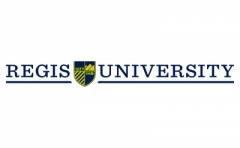Read more about our ranking methodology.
Denver, CO 80221-1099
* These statistics utilize the most recently released data from IPEDS (Integrated Postsecondary Education Data System)
Sources for school statistics and data include U.S. Department of Education's National Center for Education Statistics and the Integrated Postsecondary Education Data System. Data may vary depending on school and academic year.


- Pharmacy (PHAR) - Professional degree programs
- Physical Therapy (PT) - Professional programs for the physical therapist
- Nursing (CNURED) - Nursing education programs at the baccalaureate degree levels (Loretto Heights School of Nursing)
- Nursing (CNURED) - Nursing education programs at the graduate degree levels (Loretto Heights School of Nursing)
- Nursing (CNDNP) - Nursing education programs at the doctorate degree levels (Loretto Heights School of Nursing)
- Baccalaureate Teacher Education Accreditation Council (BTEAC) - Baccalaureate programs
- Graduate Teacher Education Accreditation Council (GTEAC) - Graduate programs
Source data obtained from U.S. Department of Education's Office of Post-secondary Education (OPE)

What letter grade would you give your school on how well it prepares students for a career in the real world?
Based on 7 ReviewsWhat letter grade would you give the students/culture at your school?
Based on 6 ReviewsWhat letter grade would you give the facilities at your school.
Based on 5 ReviewsWhat overall letter grade would you give the activities/groups at your school?
Based on 3 ReviewsTelevision news host Campbell Brown, Tulsa mayor Dewey F. Bartlett Jr., New Mexico senator Joseph Montoya, and soprano Charity Sunshine Tillemann-Dick all went to Regis. Actor Bill Murray was a pre-med student at Regis but dropped out after one year; the university awarded him an honorary degree in 2007.
In a word: picturesque. At the 100-acre flagship campus in Northwest Denver, the Rocky Mountains form the backdrop behind iconic Main Hall -- home of the university’s administrative offices. The region enjoys about 300 days of sunshine a year, which adds to the university’s upbeat feel.
Regis commits to meeting the needs of busy professionals who want to earn a degree. Format options include campus-based, online, and directed study. Accelerated programs provide five- or eight-week terms that start six times per year rather than traditional 16-week semesters. Graduate programs in nursing and education are particularly extensive and well-regarded.
The Rangers compete in NCAA Division II in the Rocky Mountain Athletic Conference. The university fields men’s and women’s teams in basketball, cross country, golf, and soccer. Then there’s men’s baseball and women’s volleyball and softball teams. Regis has been honored by the NCAA for graduating 94 percent of student athletes within six years of original enrollment.
The most popular majors at Regis include health professions and related programs, business, computer and information sciences, liberal arts and sciences, general studies and humanities, and psychology. About half of all undergrads complete internships for credit during their studies. In line with the university’s Jesuit tradition, exploring the question “How ought we to live?” is a vital part of the Regis experience.
Forbes ranked Denver first on its 2015 list of “Best Places for Business and Careers.” Factors giving Denver an edge include its diverse economy (strong in aerospace, aviation, bioscience, energy, financial services, information technology, healthcare, and telecommunications) and its highly educated labor force (second-highest number of college graduates per capita in the U.S.). Companies increasingly choose Denver as the site for new operations or to relocate -- Panasonic Enterprise Solutions and Lockheed Martin recently made the move. Also, as the state capital, Denver hosts a variety of national and state governmental offices.
Denver Public Schools and institutes of higher education such as the University of Colorado at Denver provide many opportunities for teachers. HealthONE Corporation, Centura Health, and SCL Health System hire for hospitals and clinics throughout the metro area. The mineral-rich Rocky Mountains attract mining and energy companies such as EnCana and Halliburton to the region. The telecommunications industry thrives, and giants such as Comcast Corporation and DISH Network employ thousands of residents.
With roughly 650,000 residents, Denver is the largest city in Colorado. More than 30 colleges and universities enrich the city, each with its own vibe and role within a neighborhood. Many graduates stay in the area because of job opportunities and, not to mention, the gorgeous weather. In 2015, Money magazine named Denver as the best city in the West in which to live and called it a “mecca for millennials.” Affordable real estate and easy access to recreational opportunities are two of its main selling points.
Seven professional sports teams, the largest city park system in the country, the second-largest performing arts complex in the nation . . . if you’re bored in Denver, you just need to leave your house. Easy access to the Rocky Mountains means plenty of skiing, snowboarding, hiking, and camping. Residents also look forward to the annual National Western Stock Show, the world’s largest rodeo.
While gender distribution at some universities skews one way or the other, Denver as a whole rocks! In fact, the city placed third out of 150 U.S. cities on WalletHub’s 2014 list of “Best Cities for Singles.” Denver did especially well in terms of “number of nightlife options per capita” and “mobile dating opportunities.” (Too bad there wasn’t a category for likelihood of bumping into Mr. or Ms. Right on a ski slope.)
